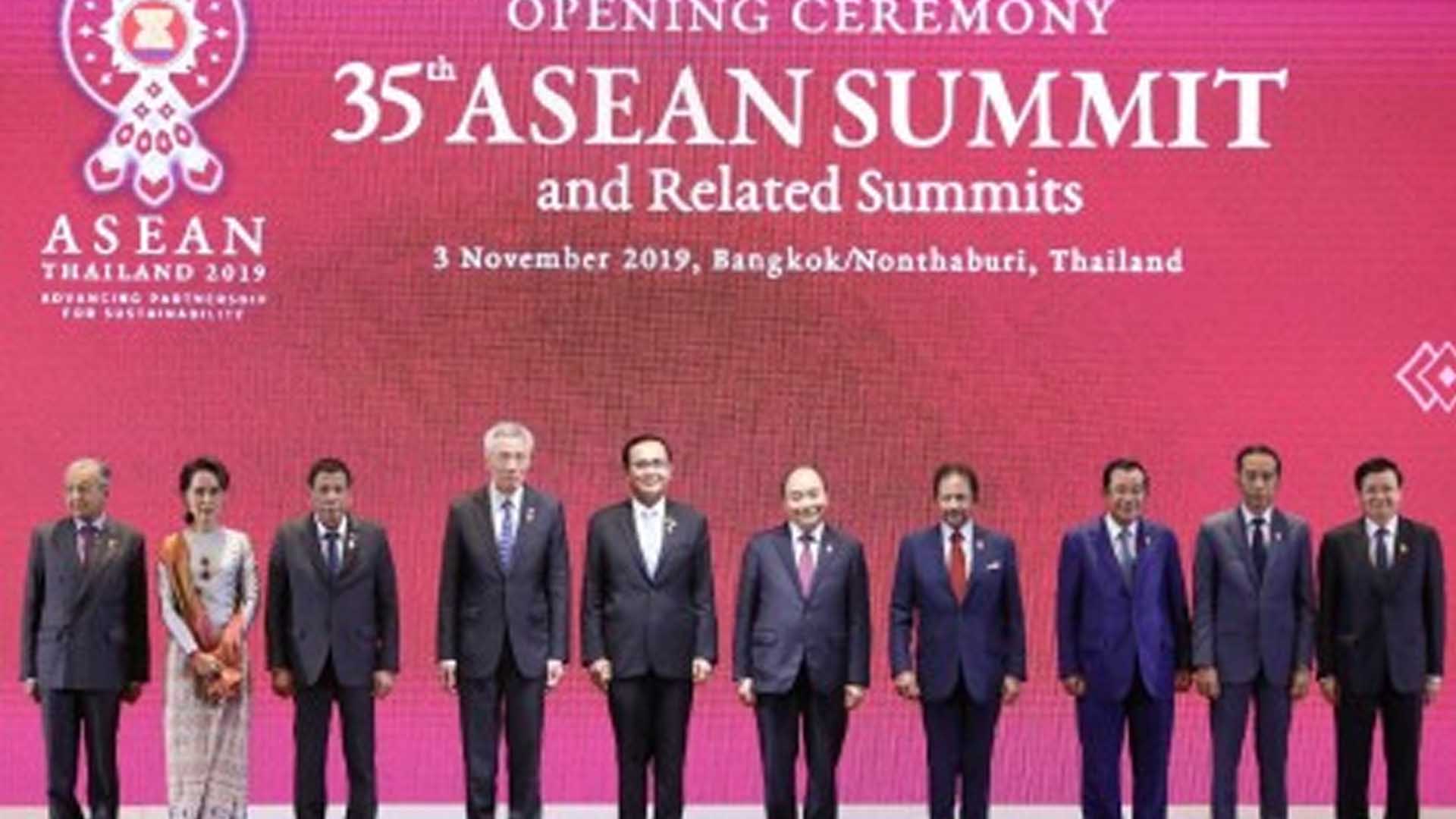Leaders of the 10-country Association of Southeast Asian Nations (Asean) are one in pushing for stronger relations with India, being an important pillar that supports the multilateral system and regionalism.
This was stressed by Thailand Prime Minister Prayut Chan-o-cha in his speech during the opening ceremony of the ASEAN-India Summit On Sunday, November 3, which is part of the 35th Asean Summit and Related Summits scheduled from Nov. 2-4, 2019.
He said both the multilateral system and regionalism bids promote “stability and prosperity in the region and the world based on mutual benefit and mutual respect”.
Asean and India are optimistic to see further improvement in their strategic partnership for the benefit of both regions, he said.
“Rather, this is done through the implementation of the Plan of Action to implement the Asean-India Partnership for peace, progress and shared prosperity, or the Asean Outlook on Indo-Pacific,” he added.
The Asean Outlook on the Indo-Pacific aims to, among others, guide cooperation in the region, help promote peace, stability and prosperity while addressing challenges by using rules-based regional structure, and enhance Asean Community’s building process.
Relatively, Indian Prime Minister Narendra Modi expressed willingness to increase partnership with Asean by way of better surface, maritime and air connectivity through digital links.
He said the USD1 billion line of credit from India “will be useful”, referring to the fund that India extended to Asean during the 13th ASEAN-India Summit in November 2015.
“Our aim is to have a great increase in the mobility of people for studies, research, trade, and tourism. In order to achieve these goals India is ready to increase its partnership with Asean in areas of mutual interest,” he said.
Modi said India is also ready to tie-up with Asean on agriculture, science, information and communications technology (ICT), engineering, maritime security, blue economy and humanitarian assistance.
The World Bank (WB) defines blue economy as the “sustainable use of ocean resources for economic growth, improved livelihoods and jobs while preserving the health of the ocean ecosystem.
Modi also “welcomed” the move to review the Asean-India free trade agreement (FTA), noting that “this will help not only to further strengthen our economic relations but our trade will also be more balanced”.
Chief Presidential Legal Counsel and Presidential Spokesperson Salvador Panelo said President Rodrigo R. Duterte, who was invited by the Thai Prime Minister to join the Asean-India Summit, shared his thoughts on the adoption of the Asean Outlook on the Indo-Pacific.
“He cited the need to broaden cooperation in science, technology, innovation, educational and vocational training exchanges,” he said.
Panelo said the President also “took the occasion to point out that the Philippines shares India’s priorities, such as the latter’s focus on the blue economy, particularly their country’s sustainable management of coastal and marine resources.”
“Having said this, PRRD raised the urgency to jointly counter marine debris generation, monitor the movement of marine litter, and evaluate systems of marine pollution,” he said.
The President also identified poverty alleviation and inequality reduction as shared goals of Asean and India, and urged India to conclude the Regional Comprehensive Economic Partnership in order to narrow the development gap.
These topics, Panelo said, show that “foremost in the mind of the President of the Philippines is the interest of his nation and his people with due consideration and respect to the concerns of others, and that he will not waver in expressing the same explicitly before the international stage.” (PNA)






